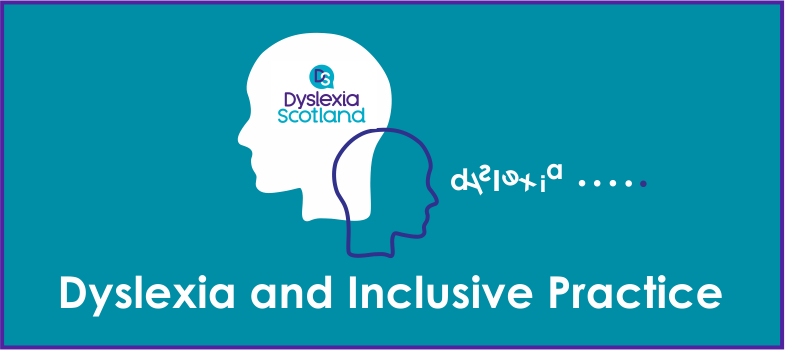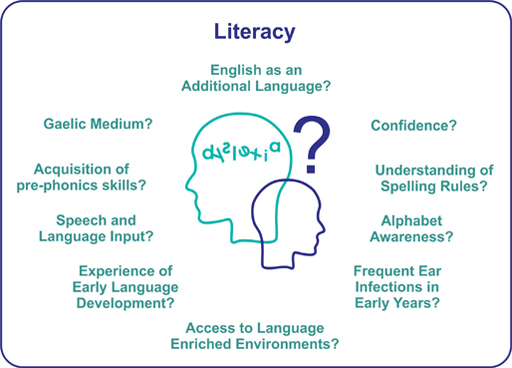2.5. Dyslexia and literacy
Historically dyslexia and literacy have been intrinsically linked. The early research and investigations which started in the late 1800s were carried out by individuals who believed that dyslexia was caused by visual processing difficulties, which in turn caused individuals to experience difficulties with reading. Over the years, a range of definitions have been developed in the United Kingdom and internationally. These definitions focus predominately on dyslexia being caused by difficulties experienced with literacy skills, particularly reading and spelling. It is therefore understandable that literacy is very often the first and sometimes the only area associated with dyslexia. It is important, however, to be aware that there can be a range of reasons why a child or young person is experiencing literacy difficulties which may not be due to dyslexia. It may also be that a learner may be able to read and write with the result that concerns are not raised, yet they may experience difficulties with processing, working memory and organisation which can have a significant impact on their learning.
The Addressing Dyslexia Toolkit working group has developed a range of free resources which will support practitioners in need to explore, indeed rule out, possible other factors which can impact on the development of literacy skills. This can be done by using a collaborative and holistic identification pathway (such as the one available in the Addressing Dyslexia Toolkit and which was highlighted within Module 1), combined with the Toolkit’s Literacy Circles which you could access and download. These resources can help those involved to explore the causal factor of the learner’s literacy difficulty and determine if it is due to dyslexia. However it is also important to remember that our education system is ‘needs led’ and that the support provided to learners is not dependent on a formal identification or label. The learner can receive the same support whether they are dyslexic or not.
Activity 14
In your Reflective Log, note down other factors which you feel can impact on the development of literacy skills.
Click ‘Reveal discussion’ to see the range of other factors which can have an impact on the development of literacy skills. Please note they are not exhaustive.
Activity 15 Reflective questions for professional dialogue with colleagues
The following questions can be used when engaging in professional dialogue during professional learning opportunities and discussions with colleagues. The outcomes from these discussions can support planning for professional learning opportunities and improvement plans. You can collate the responses in your Reflective Log. Click to 'download' a discussion sheet if required [Tip: hold Ctrl and click a link to open it in a new tab. (Hide tip)] .
- How successfully do we use the most appropriate teaching methods to support dyslexic learners in acquiring the tools for reading and developing higher order comprehension skills? How well do we choose suitable tasks, activities and resources?
- Do our teaching staff have the required knowledge and understanding to teach literacy and how do we know?
2.4. The impact of dyslexia

